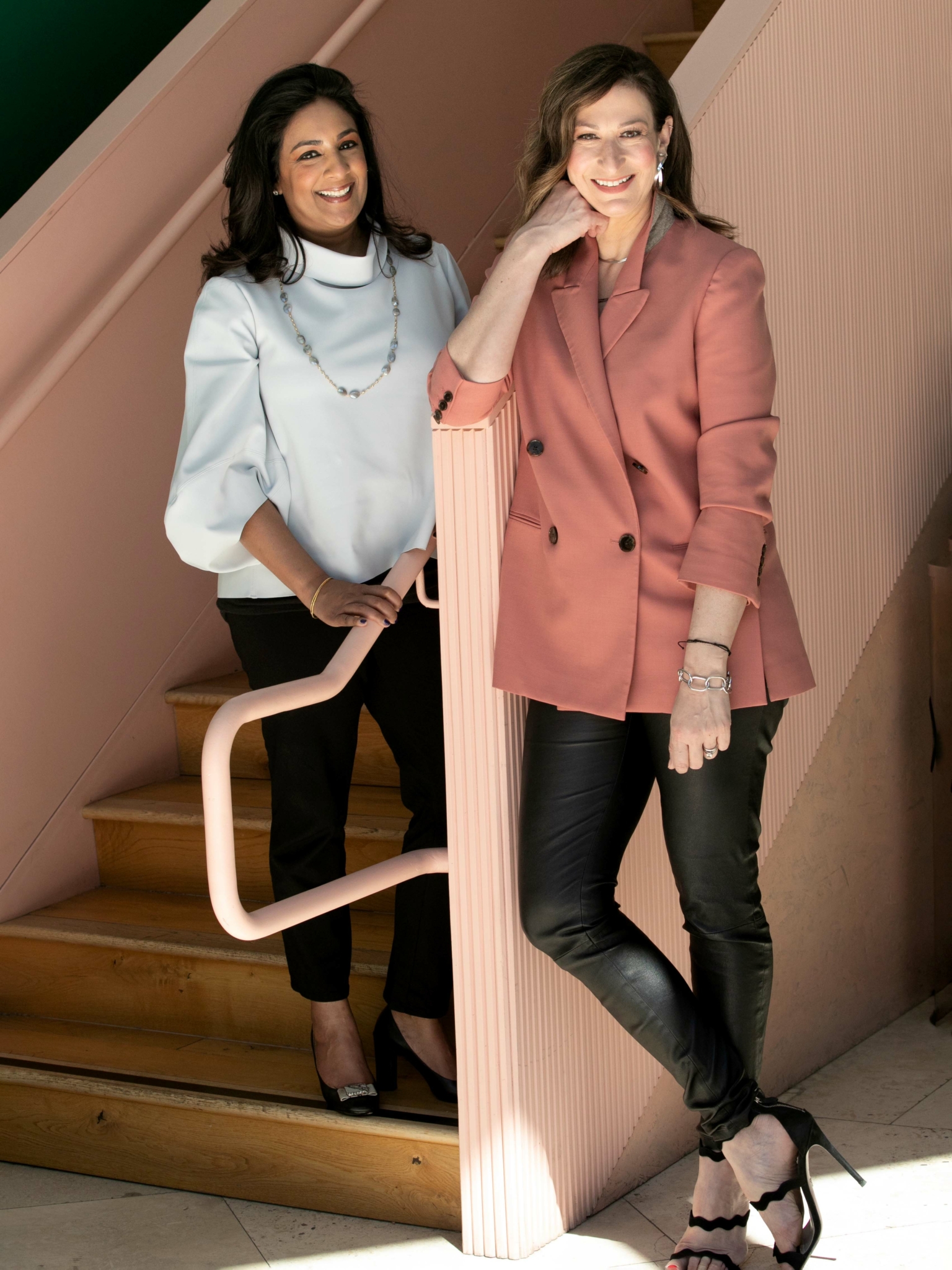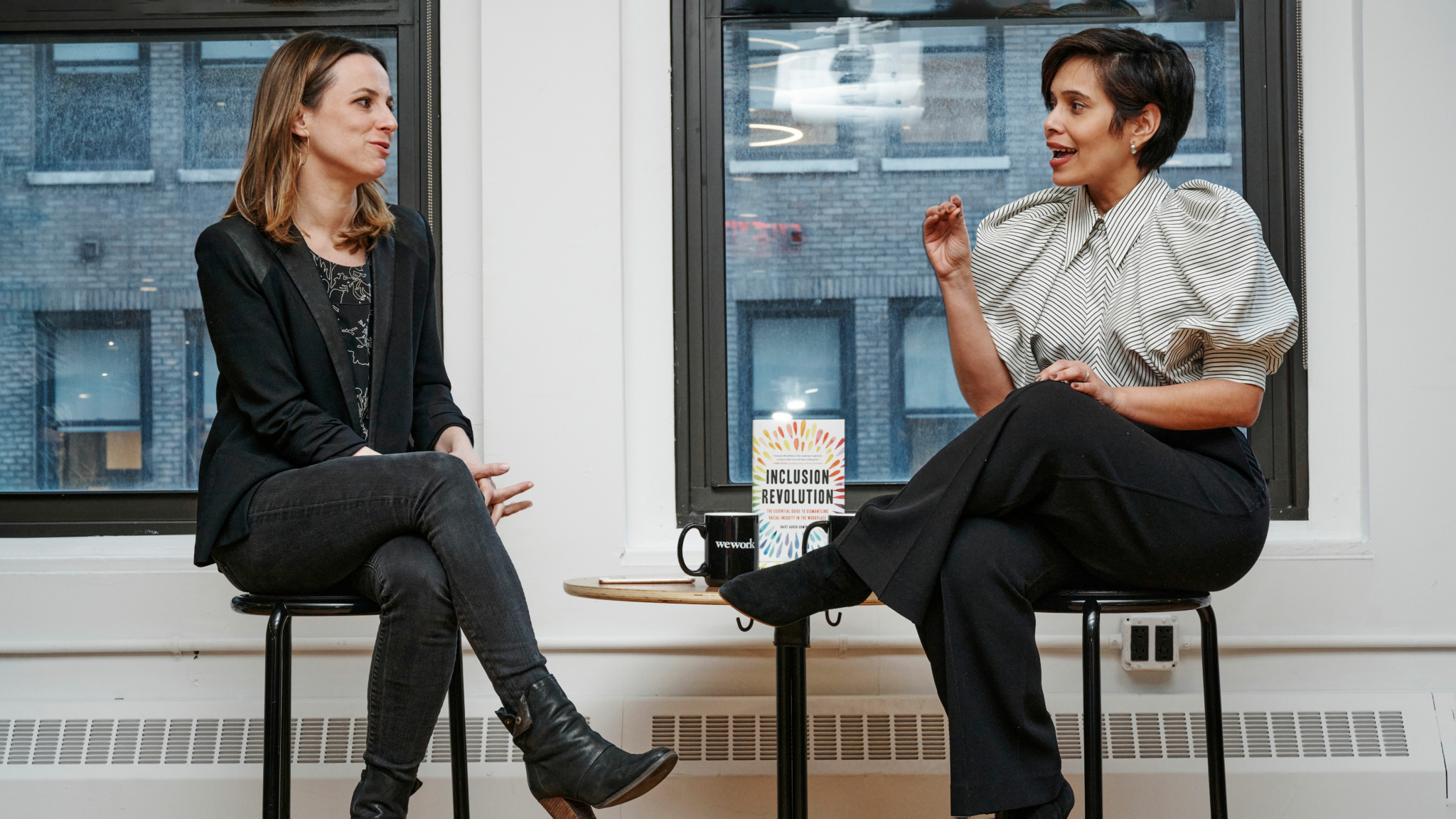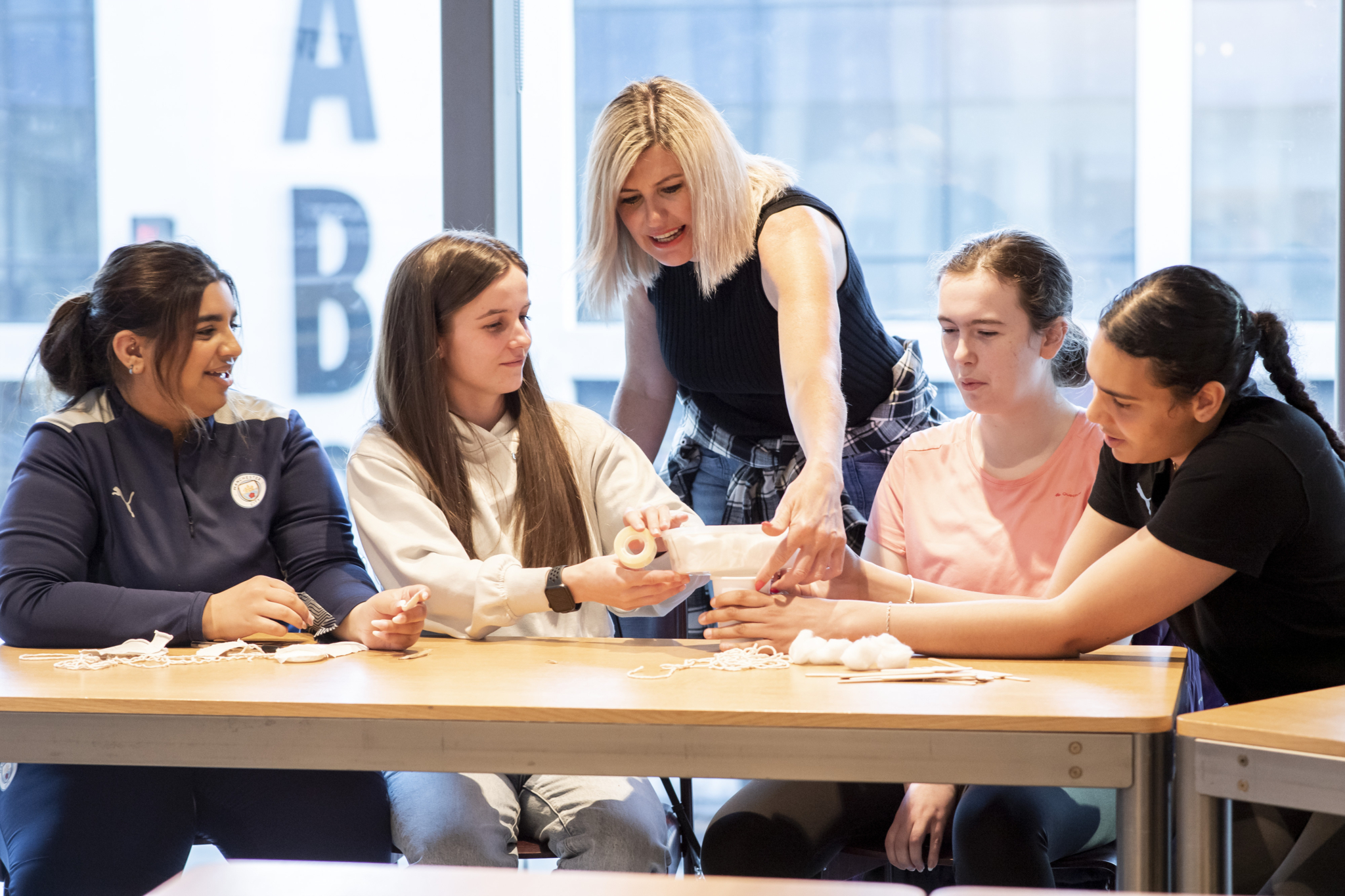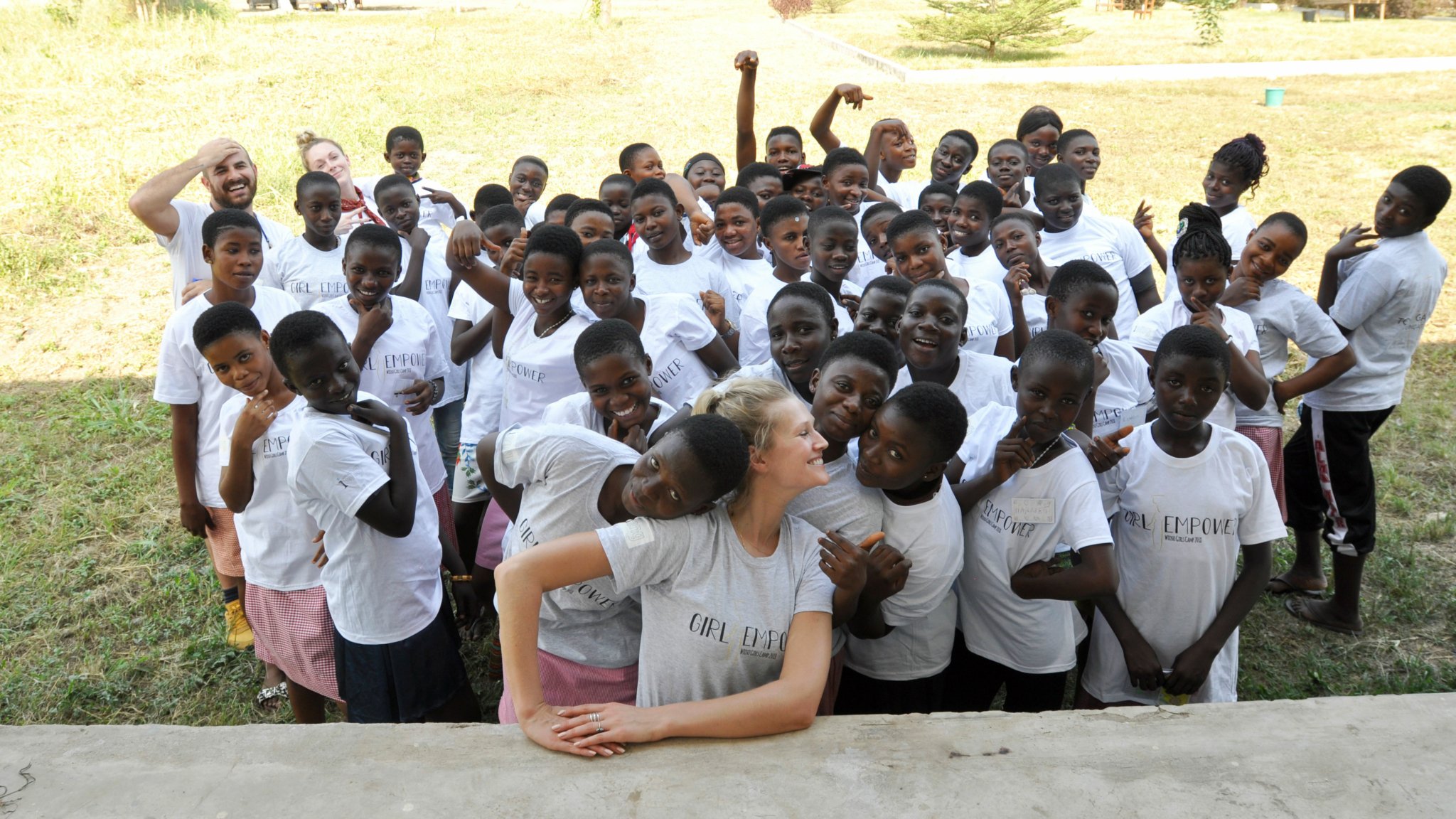This year, the conversations during Women’s History Month felt more urgent than ever. After two years of a traumatic pandemic, record unemployment that disproportionately affected women, and a social justice reckoning that brought to light painful systemic racism and inequality, it is time to talk about solutions.
With that goal in mind, TheLi.st partnered with WeWork to host conversations between nationally celebrated thought leaders who are lighting the way forward for us all.
TheLi.st is a community of high-impact women and non-binary people in media, technology, entrepreneurship and business who are devoted to helping one another achieve and succeed – and we are devoted to helping us all succeed together. Here are some of our speakers and their ideas for a more equitable future.
See beyond women’s roles as mothers
Eve Rodsky, author of Fair Play and Find Your Unicorn Space, wants to help women see themselves beyond their roles as mothers and partners and to create space for their passions.
Why is it important for women to make space for themselves independent of who they are to others?
Right now women are burnt out. More women reclaiming their Unicorn Space – their right to be interesting – means there’s been a cultural shift in the value of time. It is still subversive for women to spend their hours on unpaid interests beyond their roles of partner, parent and professional.
How can women actively foster a space for their own passions?
By giving yourself the permission to be unavailable and burning the guilt and shame in doing so, you open the space to explore your curiosities – the things that interest you, align with your values and fill you up.
Why is it so important for women to give themselves permission to be unavailable?
Prioritising creative time for you is essential to your ongoing sense of self, the health of your relationships, and your ability to convey what a full and meaningful life looks like to your family and your greater community. If we want to avoid burning out, opting out and losing ourselves, we each must set true boundaries by reclaiming the space and time for creative self-expression.
Celebrate women of colour
Deepa Purushothaman, author of The First, the Few, the Only, wants to change corporate culture to support and celebrate the work of women of colour.

What are some unique challenges women of colour face?
Women of colour (WOC) are taught that to be successful and to get ahead they must conform and perform in very specific ways. But the models that come before us don’t look like us or take our needs into account. It causes WOC to erase parts of ourselves, and we can’t feel powerful if we are hiding these parts. Over and over, I’ve met women of colour who question their own worth when they should be questioning the culture of corporate America and demanding true inclusion.
Why are those challenges so harmful to women? Why are they so hard to overcome?
We’ve been taught that if we work four times as hard as our white peers, we just might get a seat at the table. But when we get that seat, we realise we’re expected to maintain the status quo, no matter how toxic it might be. We need to let go of the idea that we must compromise to get power and then when we do, we get to do what we want, because that rarely happens. In the process, we end up feeling exhausted and muffled.
Behind corporate America’s veneer of inclusion, it has never really fostered true equity, especially for women of colour. As ‘the first, the few, the only’, I want to give us permission to question everything, and to define and redefine power in a way that suits us. This means working out for ourselves what makes us feel powerful, rather than using the playbook most of us have been handed growing up and in corporate spaces.
Why is it so important for women to give themselves permission to be unavailable?
We have to get realistic about the costs of working harder. We don’t talk enough about the toll it takes on our mental and physical health, our relationships and our self-esteem. I also think we need to hear from more WOC who have risen, and the cost it has taken on their health and how many of them have left to start their own companies. We need to start asking ourselves new questions and placing as much priority on our health and healing as on our rising.
Address burnout
Jennifer DaSilva, president of WPP creative agency Berlin Cameron, is shining a light on burnout and exhaustion.
Why have women been suffering from burnout more than men during the pandemic?
There is a disparity between the responsibilities placed on women versus men. During the pandemic, more of the household and childcare duties fell on women. As a result, women were more prone to burnout. On top of that, they still had to handle their professional responsibilities.
There is a high burden placed on women to put forward multiple versions of themselves. Our study reveals that these pressures are immense and can hold women back from exercising their creativity and passions. We need to value women’s time the same as men and ensure that women have the creative space to flourish.
What are some of the ways workplaces can acknowledge burnout?
Our research shows that the top thing women want from their bosses is to be recognised for their unpaid and invisible labour. Women often handle the administrative and scheduling components associated with work, in addition to their existing work tasks. Workplaces can acknowledge this invisible labour by paying attention, ensuring that the division of labour is equal and rewarding those who step up to complete the ‘extra’ tasks. It’s also critical for organisations to create a safe space for employees to feel comfortable sharing their stresses.
How can women support themselves? How can workplaces support them?
Our research reveals that 64 per cent of women wish they had more time for themselves, and 53 per cent wish they could invest in themselves, their interests and hobbies. If we do give ourselves the time to tinker and wonder, we feel relieved, creative and inspired. We can find this time by reframing our guilt around doing things for ourselves. Position these creative and inspirational moments as a necessity to yourself and others and take interest in your own life.
At the workplace, we need to insist that people take time for themselves. Agencies like 72 and Sunny are doing this by having a recovery coordinator who ensures that everyone takes their holiday time and gets a break.
Treat inclusion as a core principle
Daisy Auger-Dominguez, author of Inclusion Revolution, sees a future of work that’s co-created by employers and employees and sees inclusion as a core principle of everyday business.
What is inclusion?
In recent years, organisations have sought to convert the term ‘diversity’ to ‘inclusion‘, and more recently to ‘belonging’. Diversity is the compositional mix of an organisation. Inclusion is when people of different backgrounds feel that their voice matters and their identity is respected and valued.

Belonging, or the feeling of connectedness within a group or community, can be seen as a higher order state. It is also a fundamental human need. Studies show that our brains crave belonging in the same way we crave food. Without it, other studies have shown, we become depressed and disengaged. It’s possible for people to be at important meetings, even to be speaking, and still not feel that people like them belong there.
Why are these things so important at work?
One of the most pressing imperatives facing business organisations is the recruitment and retention of talent across intersectional lines including race, gender, non-normative gender and sexuality, disability, age, you name it. Building workplaces that are inclusive and equitable is central to their strategic success. Organisations need to both invest in nurturing a sense of belonging across every level and chip away at the systemic inequities and disparities to ensure that they become and remain talent destinations.
What’s one tip for people who want to practise more inclusion at work?
Seek to understand how deep bias runs in your workplace – it starts with recognising your own blind spots and assumptions. Ask yourself: what motivates me to build an inclusive workplace? What events and/or people in the past have made me who I am today? What beliefs have I given up on? Which do I hold on to, and why? What makes me nervous or confused?
Steer clear of the likability trap
Alicia Menendez, MSNBC anchor and author of The Likeability Trap, sees likability as a way to sideline and diminish women at work.
What is the likability trap?
Women are stuck in an impossible bind. At work, strong women are criticised for being cold, and warm women are seen as pushovers. Consider that even competent women must appear likable to successfully negotiate a salary, ask for a promotion or take credit for a job well done – and that studies show these actions usually make them less likable. This minefield is doubly loaded when likability intersects with race, ethnicity, sexual orientation and parental status.
Why is it harmful for women?
Women pay both an internal price for the expectation that we should care what others think of us, and an external price in career advancement. But it’s not just women who are harmed by this bias. Workplaces lose out on talent and ideas. Leaders of any gender are limited by such a narrow definition of how a leader looks and sounds.
What can men and women do in the workplace to address this issue?
Sponsor someone who has a different life experience and perhaps a different style. Check your language. Is an employee indecisive or deliberate? Emotional or passionate? Is she aggressive, or does she deliver for her team? Focus feedback on results, not style. Ensure that feedback follows a 360-degree approach.
Ann Shoket is owner and CEO of TheLi.st. She is the author of the widely acclaimed book The Big Life. Shoket is a regular contributor at Good Morning America, and has spoken at conferences such as TEDx, SXSW and The Pennsylvania Women’s Conference, and for corporations including Facebook, Microsoft, Avon and more.
Rethinking your workspace?














